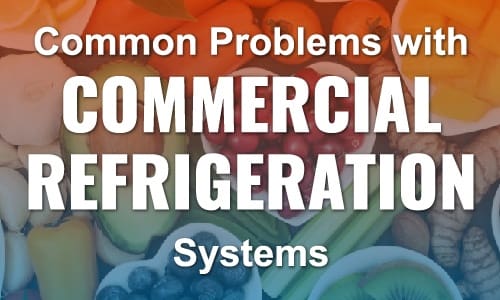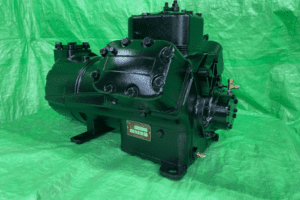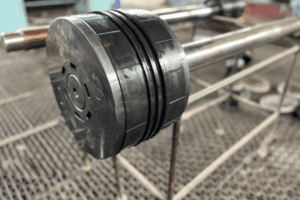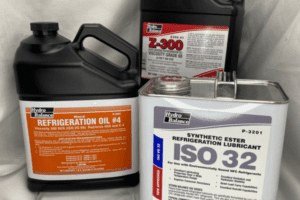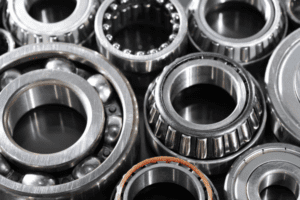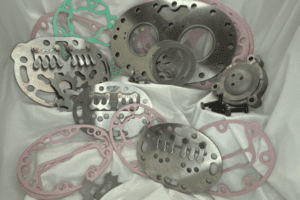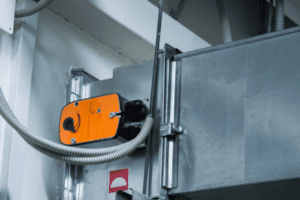Your commercial refrigeration systems do more than just provide adequate temperatures for refrigerated products. They also impact productivity levels, energy bills, and product safety.
Because commercial refrigeration equipment runs on an almost continuous basis, implementing an adequate preventive maintenance program is an absolute necessity to ensure that your refrigeration systems function properly and efficiently at all times.
But even well maintained systems can run into operational problems from time to time. Thus, knowing the problems that might occur with commercial refrigeration equipment is critical in order to prevent them from escalating into serious issues.
Here are some common commercial refrigeration problems business professionals should be aware of.
Ice Buildup inside the Refrigerator
Ice buildup inside commercial refrigerators often occurs when warm air from outside enters a refrigerator and condenses on interior surfaces. However, ice or frost developing inside refrigerated compartments may be indicators of several problems, such as improper air ventilation, faulty door gaskets, refrigerant leaks, or doors being opened too frequently or left open for too long.
Failure to Maintain Temperature Levels
The inability of commercial refrigeration systems to provide enough cooling may be due to: dirty condenser and evaporator coils, a malfunctioning compressor or thermostat, incorrect temperature settings, dirty fans, inadequate air flow inside the refrigerator, door gaskets that aren’t sealing properly, or refrigerant leaks.
An important, yet often overlooked, aspect is that a malfunctioning compressor can cause significant temperature fluctuations inside a refrigerator and affect its efficiency. While there are many different potential causes of compressor failure, high compressor discharge temperatures represent one of the most common problems when it comes to commercial refrigeration.
Because a malfunctioning compressor needs to work harder and longer in order to maintain the temperature levels desired in refrigerated compartments, the discharge temperature is often going above the limit recommended by the manufacturer. Eventually, this will lead to compressor overheating. Some of the potential causes of this problem include:
- dirty condenser and/or evaporator coils;
- an under-charge of refrigerant or an incorrect oil-refrigerant ratio that can lead to increased suction temperatures;
- a leak in the discharge or relief valve, which will ultimately result in excessive heat generation.
Another common problem in commercial refrigerator compressors is ice accumulation on evaporator coils. Because this issue can negatively affect the cooling capacity of the system—which will eventually lead to inefficient and inadequate refrigeration—it is imperative to address and solve the root causes of ice accumulation on evaporator coils in a timely manner. Some factors that could cause ice to form on evaporator coils are:
- excessively low temperature settings;
- dirty fans and filters, followed by inconsistent and improper airflow;
- reduced cooling capacity of the coil, which can be due to dirt and debris accumulation;
- failure of the evaporator fan motor;
- a malfunctioning defrost system.
Liquid slugging and lack of lubrication are two other factors that can cause a commercial refrigeration compressor to fail. Excess friction due to lack of lubrication can also lead to compressor overheating. If you suspect any problem with your compressor, you should have it checked by a professional right away, regardless of whether or not it’s still under warranty.
Unfamiliar Noises
There are different sources of noise in commercial refrigeration equipment, including the compressor, fans, and motors. However, abnormal noise levels or unfamiliar sounds may be signs of specific problems, which may range from compressor failure to a fan motor that has become misaligned.
Irrespective of the problems identified or suspected, it’s always best to have a professional technician evaluate and maintain your commercial refrigeration equipment on a regular basis. That is very important because when problems occur with commercial refrigeration equipment, they can complicate the way a business runs on a given day or even require to shut down an entire facility temporarily.
In addition to the new and remanufactured compressors as well as the aftermarket parts and accessories Compressors Unlimited has been providing since 1997, we offer knowledgeable and courteous customer service both before and after the sale. If you have any questions that our website doesn’t answer, please don’t hesitate to contact our friendly professionals today!

